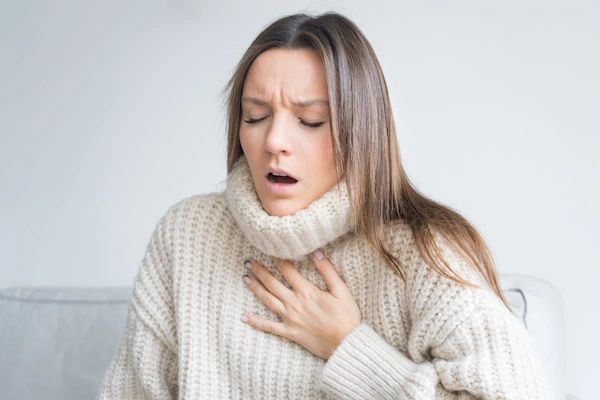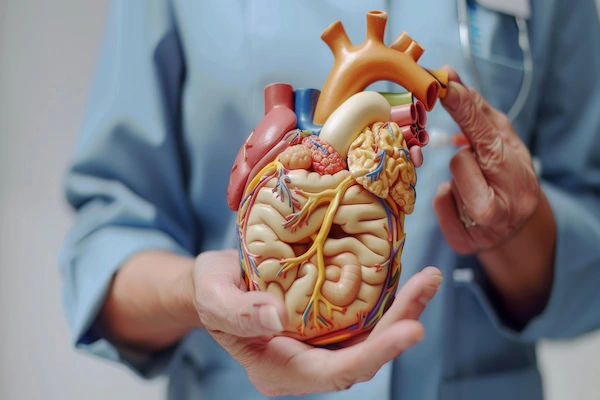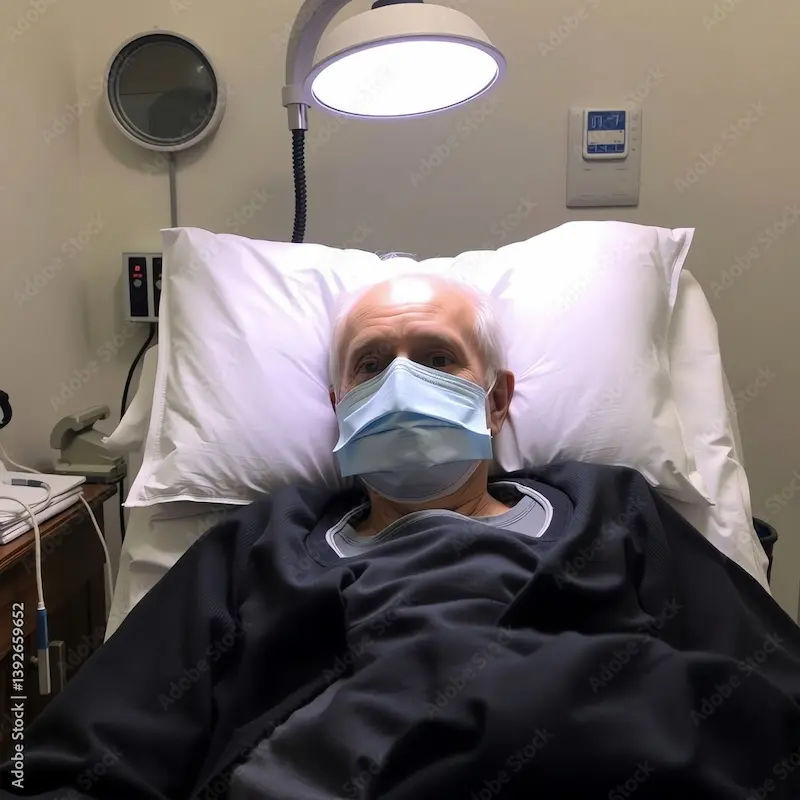Warning Signs of Stroke to Recognize
Learn the crucial warning signs of stroke (BEFAST) to recognize them quickly. Understand these vital symptoms—from sudden weakness and speech changes to vision problems—and why immediate action is critical for minimizing brain damage and ensuring better outcomes.

Written by Dr. Rohinipriyanka Pondugula
Reviewed by Dr. J T Hema Pratima MBBS, Fellowship in Diabetes Mellitus
Last updated on 13th Jan, 2026

Introduction
A stroke is a serious medical emergency that occurs when the blood supply to part of the brain is interrupted or reduced, depriving brain tissue of oxygen and nutrients. Recognizing the warning signs of a stroke and acting quickly can save lives and prevent longterm disability.
In this article, we’ll discuss the key warning signs of a stroke, what causes it, and what you should do if you or someone around you experiences these symptoms.
What Is a Stroke?
A stroke happens when a blood vessel in the brain gets blocked (ischemic stroke) or bursts (hemorrhagic stroke). Without oxygen, brain cells begin to die within minutes, leading to potential brain damage, disability, or even death.
Key Facts About Stroke:
- Time is critical – The sooner treatment begins, the better the chances of recovery.
- Anyone can have a stroke – While older adults are at higher risk, strokes can occur at any age.
- Prevention is possible – Managing risk factors like high blood pressure, diabetes, and smoking can reduce the risk.
Warning Signs of a Stroke (FAST & Beyond)
The most common signs of a stroke can be remembered using the FAST acronym:
F – Face Drooping
- One side of the face may droop or feel numb.
- Ask the person to smile—does one side of the face appear uneven?
A – Arm Weakness
- Sudden weakness or numbness in one arm or leg.
- Ask the person to raise both arms—does one arm drift downward?
S – Speech Difficulty
- Slurred speech or trouble speaking.
- The person may seem confused or unable to understand simple sentences.
T – Time to Call Emergency Services
If any of these signs appear, call for emergency help immediately.
Other Possible Stroke Symptoms
In addition to FAST, watch for:
- Sudden severe headache (often described as "the worst headache of my life").
- Sudden dizziness, loss of balance, or trouble walking.
- Sudden vision problems (blurred or blackened vision in one or both eyes).
- Sudden confusion or trouble understanding speech.
Why Acting Fast Is Crucial?
Every minute counts during a stroke. The longer the brain goes without oxygen, the higher the risk of permanent damage. Immediate medical treatment can:
- Dissolve clots (if given within 34.5 hours for ischemic stroke).
- Stop bleeding (in case of hemorrhagic stroke).
- Reduce disability and improve recovery chances.
What to Do:
1. Call emergency services (108 or local ambulance) immediately.
2. Note the time when symptoms first appeared—this helps doctors decide on treatment.
3. Do NOT wait to see if symptoms go away.
4. Do NOT drive yourself to the hospital—emergency responders can start treatment on the way.
Who Is at Risk of a Stroke?
Certain factors increase the likelihood of a stroke:
- High blood pressure (the biggest risk factor).
- Heart disease (especially atrial fibrillation).
- Diabetes.
- Smoking & excessive alcohol use.
- High cholesterol.
- Obesity & lack of exercise.
- Family history of stroke.
Consult Top Heart Specialists
How to Reduce Your Risk of Stroke?
While some risk factors (like age and genetics) can’t be changed, many lifestyle adjustments can help prevent strokes:
1. Control Blood Pressure
- Monitor regularly.
- Take prescribed medications.
- Reduce salt intake.
2. Eat a Heart Healthy Diet
- More fruits, vegetables, whole grains, and lean proteins.
- Less fried, processed, and sugary foods.
3. Stay Active
- Aim for at least 30 minutes of moderate exercise (walking, swimming) most days.
4. Quit Smoking & Limit Alcohol
- Smoking damages blood vessels—quitting reduces stroke risk significantly.
- Drink alcohol in moderation (1 drink/day for women, 2 for men).
5. Manage Diabetes & Cholesterol
- Keep blood sugar levels under control.
- Lower bad cholesterol (LDL) through diet and medication if needed.
When to See a Doctor?
If you or a loved one has any stroke risk factors or has experienced ministrokes (TIAs)—brief episodes of strokelike symptoms—consult a doctor immediately. TIAs are warning signs that a major stroke may follow.
Get Expert Help with Apollo 24|7
If you have concerns about stroke risk, Apollo 24|7 offers:
- Cardiology consultations with expert doctors.
- Health checkups to assess stroke risk.
- Emergency stroke care guidance.
Book a consultation today to stay proactive about your brain health.
Final Thoughts
A stroke is a medical emergency, and recognizing the warning signs early can save lives. Remember FAST (Face, Arm, Speech, Time) and act immediately if symptoms appear. By managing risk factors and adopting a healthy lifestyle, you can significantly lower your chances of having a stroke.
Stay alert, stay informed, and take action—your brain health matters!
Need help? Reach out to Apollo 24|7 for expert advice and care.
Consult Top Heart Specialists
Consult Top Heart Specialists
Dr. Praveen Jaiswal
Cardiologist
17 Years • MD(Medicine), DM(Cardiology)
Indore
Apollo Hospitals Vijay Nagar, Indore

Dr. Shanmuga Sundaram D
Cardiologist
8 Years • MBBS, MD (GM), DNB Cardio
Chennai
Apollo Speciality Hospitals OMR, Chennai
(50+ Patients)

Dr. Sumanjita Bora
Cardiologist
9 Years • MBBS, PGDCC
Bengaluru
Apollo Clinic, Sarjapur Road, Bengaluru
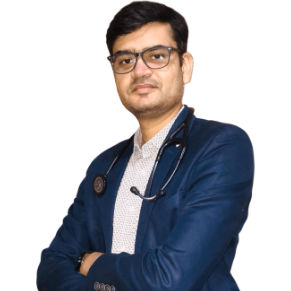
Dr. Abhishek Rathore
Cardiologist and Electrophysiologist
7 Years • MBBS, MD (Gen. Medicine), DM ( Cardiology ), Post-Doctoral Fellowship in Cardiac Electrophysiology.
Indore
Apollo Hospitals Vijay Nagar, Indore
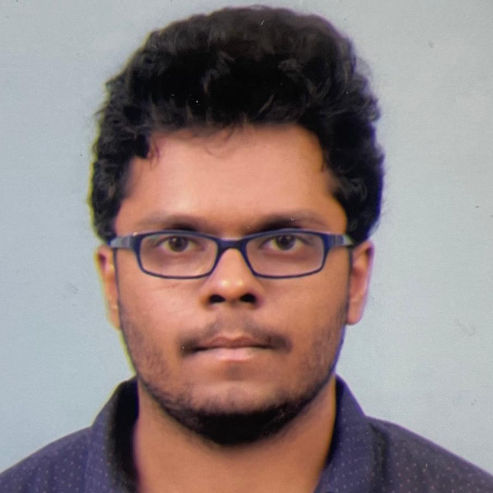
Dr. Bhethala Sharan Prakash
General Physician/ Internal Medicine Specialist
5 Years • MBBS MD
Bengaluru
PRESTIGE SHANTHINIKETAN - SOCIETY CLINIC, Bengaluru
Consult Top Heart Specialists
Dr. Praveen Jaiswal
Cardiologist
17 Years • MD(Medicine), DM(Cardiology)
Indore
Apollo Hospitals Vijay Nagar, Indore

Dr. Shanmuga Sundaram D
Cardiologist
8 Years • MBBS, MD (GM), DNB Cardio
Chennai
Apollo Speciality Hospitals OMR, Chennai
(50+ Patients)

Dr. Sumanjita Bora
Cardiologist
9 Years • MBBS, PGDCC
Bengaluru
Apollo Clinic, Sarjapur Road, Bengaluru

Dr. Abhishek Rathore
Cardiologist and Electrophysiologist
7 Years • MBBS, MD (Gen. Medicine), DM ( Cardiology ), Post-Doctoral Fellowship in Cardiac Electrophysiology.
Indore
Apollo Hospitals Vijay Nagar, Indore

Dr. Bhethala Sharan Prakash
General Physician/ Internal Medicine Specialist
5 Years • MBBS MD
Bengaluru
PRESTIGE SHANTHINIKETAN - SOCIETY CLINIC, Bengaluru
